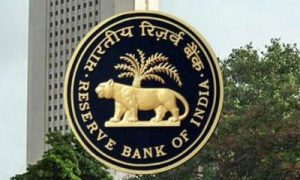The Public Provident Fund (PPF) is an excellent investment option with EEE (Exempt-Exempt-Exempt) status. This means it offers a tax deduction at the time of investment, the interest earned is tax-free, and the maturity proceeds are also exempt from tax. Currently, the interest rate for PPF is 7.10%. Moreover, PPF is fully secure as it is backed by the Government of India.
Some of the people who understand the benefits of this vehicle tried to game the system by having multiple PPF accounts and by not following some of the rules regarding contribution.
Before discussing further – let’s understand some of the basic rules of PPF account:
- A person can open only one PPF account.
- If a father or mother, as guardian, has opened a PPF account for their kid – the ceiling of 1.50 lakhs is the combined limit for guardian and kid AND hence someone depositing 1.50 lakhs each in both PPF account – guardian’s account and kid’s account is against the rules.
- As a NRI you cannot open a new PPF account. In case you opened the PPF account while you were a resident and later your status changed to Non Resident – you can continue to make subscriptions and at maturity – it is compulsory for NRIs to withdraw the funds and NRIs do not have the option of extension.
Here is what all the PPF account holders need to know about the recent changes:
Irregular accounts for individuals with multiple PPF account
Although individuals are permitted to have only one PPF account per PAN, some people have found ways to open multiple accounts, either by using different banks or by combining accounts from a bank and a post office.
These additional PPF accounts, all except one, are now being classified as irregular. The account holder can choose one primary account. The balance in the second PPF account will be merged with the primary account, provided the total investment (in primary account & second account) remains within the yearly ceiling. However, any excess balance, over and above the yearly ceiling, from the second account will be refunded without any return i.e. 0% rate of interest.
After the merger, the primary account will continue to earn interest at the prevailing scheme rate.
It’s important to note that all other additional PPF accounts, aside from the primary and second accounts, will earn no interest from the date they were opened.
Also Read : Government may raise EPFO wage ceiling to ₹21,000, allowing you to retire with ₹1 crore: Report
Irregular accounts for minors
Examples of irregular account in case of minors:
If both the parents have opened separate PPF account for the same child.
Or
If both the parents and grandparents have opened a PPF account for the same child.
Or
The same kid has one standalone PPF account and one more joint PPF account with either of the parents.
Or
The guardian is depositing 1.50 lakh in his account and 1.50 lakhs in the account of the minor as well.
Here, the only difference is that the irregular minor account will earn Post Office Savings Bank Account interest and not the zero percent.
Irregular accounts in case of NRIs
For Non-Resident Indians (NRIs), PPF account rules are quite strict.
NRIs are not permitted to open new PPF accounts. However, if an individual opens a PPF account while being a resident and later becomes an NRI, they can continue investing in the account until the 15-year maturity period or the maturity period of the block five years. After this period, NRIs are not allowed to extend the account – they have to mandatorily close the account and withdraw the funds.
Also Read : LIC Mutual Fund Launches New Scheme: All You Need to Know
If any NRI has extended the PPF account, it will be classified as an irregular account and it will cease to earn interest from 30th September 2024.
Please note if none of the above is applicable to you – your PPF account will continue earning the prescribed rate of interest and you can enjoy the tax free compounding.





































